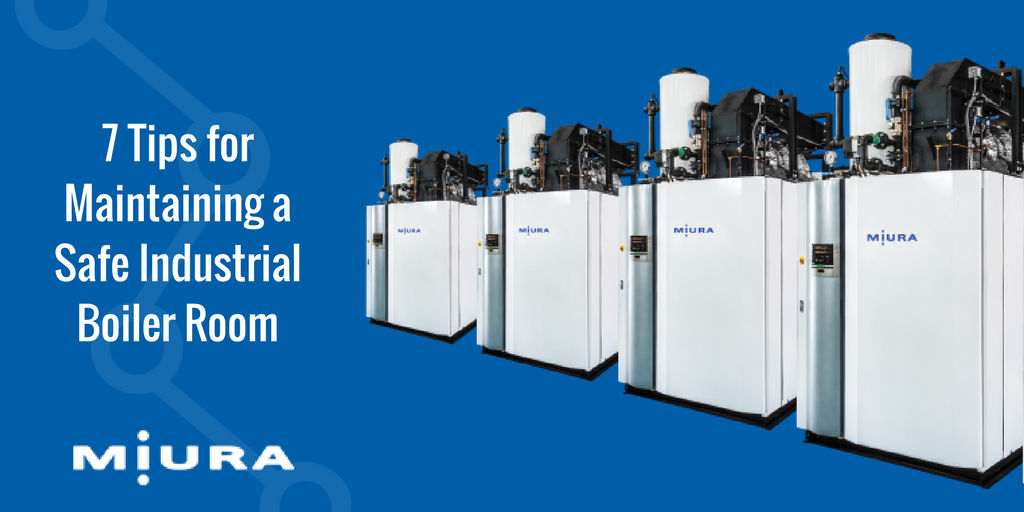
One of the first steps toward securing a safe building is ensuring a safe boiler room. Any accident or malfunction in the steam boiler is potentially dangerous, and so every detail in boiler room safety is important and can’t be overlooked.
In addition to having a quality steam boiler and a competent staff, here are seven tips for maintaining a safe boiler room.
Clear the Room
A boiler room is just that: a room for a boiler. It is not a room that should be used as a storage area for other items. For starters, burners need proper circulation so they don’t start producing harmful carbon monoxide. Having items scattered about the boiler room can get in the way of that. You also don’t want to get in the habit of using the boiler room as a storage space on the off chance you accidentally put something flammable in there. The best thing you can do for boiler room safety is simply to make sure nothing is in there that doesn’t need to be there.
Keep an Operations Log
It’s important to keep a record of everything that happens within a boiler room. This includes maintenance records, notes from the manufacturer, and anything an employee does while in the boiler room. This will help keep you ahead of any potential problems with the steam boiler. Also, if there is an issue, it’ll be easier to figure out what went wrong and when it went wrong so that the problem can be rectified as soon as possible.
Regular Maintenance and Inspections
Regular maintenance is important for any piece of equipment, and it’s particularly vital for boiler room safety. It’s best to adhere to a strict maintenance schedule with a boiler in order to foresee any potential problems. If you keep an operations log, it should not be difficult to create a schedule for when routine maintenance on a boiler is needed. The key, of course, is sticking to that schedule, which is of the utmost importance. It’s also important to have regular inspections performed by a third party who can spot issues that may have been overlooked.
Monitor New Equipment
If any repairs are done on a boiler or new equipment installed, there needs to be an extensive examination of the boiler afterward to ensure everything is working properly. This is a critical time for any boiler system, and so a trained expert needs to monitor the boiler to make sure it’s running efficiently and safely.
Follow Checklists
Sometimes, proper safety is all about following a set protocol. For boilers, it’s imperative to create checklists for properly starting up the boiler, properly shutting it down, and everything in between. Taking into account recommendations from the manufacturer, create a checklist for all procedures related to the boiler and follow them to a T. By creating a checklist and always following it, it should minimize errors and safety issues as much as possible.
Safety Equipment
Knowing the procedures to prevent an accident is important, but it’s equally important to have the proper safety equipment on hand. This includes goggles, hard hats, fire extinguishers, etc. Creating a checklist for safety equipment may not be a bad idea. The last thing you want is for something to not be there when you need it.
Emergency Training
You may not anticipate any kind of boiler room emergency happening, but you need to be prepared if it does. Everyone who spends any amount of time in the boiler room should go through emergency training. Hopefully, emergency training will never have to be used, but if boiler room workers have the proper training, they’ll be able to remain calm and respond accordingly if anything serious ever happens.
For more information on proper boiler room practices, contact Miura today.
Contact Us



